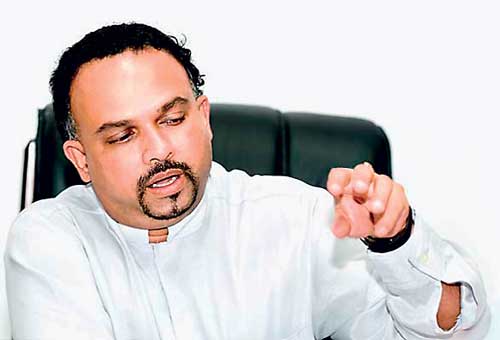Thursday Feb 26, 2026
Thursday Feb 26, 2026
Thursday, 8 September 2016 00:00 - - {{hitsCtrl.values.hits}}
Plantation Industries Minister Navin Dissanayake will be the Chief Guest and deliver the keynote address at the 162nd Annual General Meeting (AGM) of the Planters’ Association of Ceylon, on 15 September.
After having served as Deputy Minister of Plantation Industries from 2001-2004 and built a relationship with those in the industry, Dissanayake has maintained active and continuous engagement with stakeholder organisations in order to formulate new solutions to the issues faced by the sector since his appointment as Minister of Plantation Industries last year.
Founded in 1854, a full 13 years before the establishment of the first commercial tea plantations in Sri Lanka, the Planters’ Association has been a vital contributor to the development of Sri Lanka’s plantation sector and the wider national economy for well over one and a half centuries.
Notably, this year’s AGM occurs just prior to the celebration of a truly historic milestone for Sri Lanka’s tea industry - the 150th anniversary of the establishment of Ceylon Tea by James Taylor at the Loolecondera estate in 1867.
Composed of a membership of more than 180, including 23 Regional Plantation Companies (RPCs), the Planters’ Association’s membership manages approximately 40% of the country’s tea, rubber, palm oil and coconut lands in addition to the management of 332 factories. The sector directly employs nearly 200,000 individuals and when combined with indirect employment, is estimated to provide a livelihood for over 1 million Sri Lankans across the island.
Among its affiliate bodies, The District Planters’ Associations too have played an important role in supporting the development of plantation executives by conducting regular meetings with eminent guest speakers, particularly in terms of events focused on personal development.
From its inception, the Planters’ Association has been at the forefront of numerous vital initiatives relating to the development of the country’s plantation industry. These include contributing approximately one-fourth of the cost of constructing Sri Lanka’s hill country railway systems in 1857, the imposition of a voluntary CESS and similar measures that led to the country’s first tea promotion campaign in 1894 and playing a leading role in the establishment of the Tea Research Institute of Ceylon in 1925.